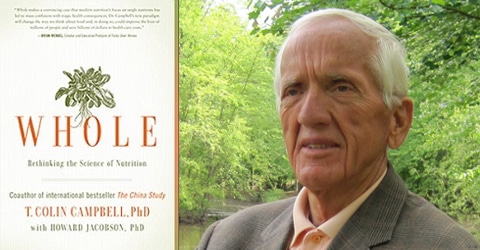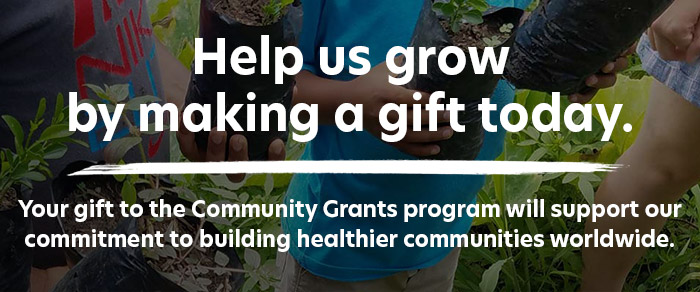

Quotations From Whole[1]
“If you want to live free of cancer, heart disease, and diabetes for your entire life, that power is in your hands (and your knife and fork).” – Page xii
“The truth. How it’s been kept from you. And why. That’s what this book is all about.” – Page xiii
“I wanted to tell this story because I owe it to you, the public. If you are a U.S. taxpayer, you paid for my career in research, teaching, and policy making … You have a right to know what your money bought and a right to benefit from its findings.” – Page xv
“The choice is ours. My hope is that this book will encourage you to choose wisely – for your health, for the next generations, and for the entire planet.” – Page xvi
The Whole Truth: An Illustration
“Do you swear to tell the truth, the whole truth, and nothing but the truth?”
Remember when that meant something to people, the truth? In today’s “civilized” Western societies, the truth seems increasingly elusive, perhaps only found in memory or the nether regions of the internet. It’s almost as if society as a whole has forgotten that misrepresentation of the truth costs lives, especially when it comes to the truth about health.
Case in point, vitamin E. This little vitamin is a powerhouse of a healer that actually includes eight analog versions of the vitamin. When the whole E-packet — found in whole, plant-based foods — is consumed, the body enjoys its many healing benefits. Unfortunately, that is not how vitamin E is always consumed, and certainly not how it is always marketed. Reductionist science takes this complex group of compounds and reduces it to a single analog in pill form. The reductionist media then share the good news about vitamin E as if it applies equally to supplements. Then, society, out of confusion and a desire for better health, swallows the incomplete truth whole (pun fully intended).
The lie is in the dissemination of this dangerous and confusing half-truth. Despite the fact that various randomized controlled trials have shown that “vitamin E supplements do not decrease the risk of cardiovascular diseases, cancer, diabetes, cataracts, or chronic obstructive lung disease,”[2] reductionist scientists continue to isolate the single vitamin E analog, and the marketing of those products continues to boom. Moreover, not only do these supplements not decrease the risk of disease, they are potentially lethal3 in that they create a belief of equivalency between whole foods and supplements when nothing could be further from the truth. In turn, this belief allows people to consume processed junk while they are under the illusion that their magic pills will save them. This is a costly lie.
Society pays the price at every step of the way. First, taxpayers fund the scientific research. Then, the public must deal with the mass confusion that results from the untruth disseminated by media and advertisers. Finally, society pays for this misrepresentation with their health, and sometimes even with their lives.
Whole is the truth, the whole truth, and nothing but the truth. It is the story of how the truth has been found and why it is guarded by those who prefer profit over healing. Dr. Campbell pulls back the curtain on science and the pursuit of knowledge and reveals the truth behind reductionist thinking and motivation.
And the truth is that this reductionist paradigm is killing us. But do not despair! Dr. Campbell also shares the truth about the power possessed by every member of society — the power to choose. We all have the power to ask questions, demand whole answers, and choose wisely; life as we know it depends on that power to choose.
It is time to do the work, and Whole is the manual. Truth must be available to all who seek it and not be held for ransom by the subtle and blatant powers of profit. It is time to roll up our sleeves and dig into the whole truth. The health of our whole world is at stake.
The CRAAP test is a valuable tool used in critically evaluating sources to ensure quality.
Discussion Questions
- Where do you find the truth about science, nutrition, and health?
- Do you perform a CRAAP test for new sources of information before you believe and share them with others?
- If the power is in your hands, your knife, your fork, your choices – how will you choose wisely? How will you (or can you?) actively hold the subtle powers in our society accountable for what they do?
- What one action can you do today to make this world a more wholistically healthy environment for all sentient beings?
Whole By T. Colin Campbell, PhD with Howard Jacobson, PhD
Whole picks up where The China Study left off. The China Study revealed what we should eat and provided the powerful empirical support for this answer. Whole answers the question of why. Why does a whole food, plant-based diet provide optimal nutrition? Whole demonstrates how far the scientific reductionism of the nutrition orthodoxy has gotten off track and reveals the elegant wonders of the true wholistic workings of nutrition, from the cellular level to the operation of the entire organism. Whole is a marvelous journey through cutting-edge thinking on nutrition, led by one of the masters of the science.
This article series is intended to provide thought-provoking quotes from the book Whole in order to encourage discussion amongst its readers. Please leave your thoughts or answers to the discussion questions in the comment section below.
References
- Campbell, T. Colin (2013). Whole. BenBella Books. ISBN 978-1-939529-84-8
- Campbell, T. Colin (2013). Whole. BenBella Books. ISBN 978-1-939529-84-8:157
- G. Bjelakovic, D. Nikolova, L.L. Gluud, R. G. Simonetti, and C. Gluud, “Antioxidant Supplements for Prevention of Mortality in Healthy Participants and Patients with Various Diseases,” Cochrane Database of Systematic Reviews 3 (March 14, 2012): CD007176. DOI: 10.
Copyright 2026 Center for Nutrition Studies. All rights reserved.
Deepen Your Knowledge With Our
Plant-Based Nutrition
Certificate
Plant-Based Nutrition Certificate
- 23,000+ students
- 100% online, learn at your own pace
- No prerequisites
- Continuing education credits












